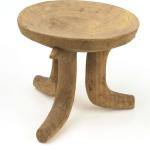 When my father built the house where I was born, the land was flat and there was little vegetation on it.
When my father built the house where I was born, the land was flat and there was little vegetation on it.
It had once been the Curran family’s cotton plantation, my mother later told me—sold and subdivided for a row of little Cape Cods and ranch houses, all arrayed in pastel asbestos siding. Including the one that, in late 1954, became my family’s home.
I was born in 1968.
There were no trees, I see in the silent drone of 36 millimeter “home movies” my father shot during the bright summers of the middle 1950s—ten years before I was born. It surprised me as a child, but shouldn’t have: The town where we lived was on the very seam of the Mississippi Delta, where wooded hills careened suddenly downward to hit flat land for a hundred miles.
Here my father and mother began to plant a garden. They would not have called it that: It was just “the backyard.” Gardens they knew from growing up, when everyone had one. The Depression: People in Mississippi were so poor to begin with that nobody noticed. But nobody had ever gone hungry, either.
An apple tree, and a pear tree, next to the fence. Behind the fence were the railroad tracks, down which the Illinois Central freight train roared four or five times a day.
Two pecan trees in the middle, framing the yard like arms. Later a fig tree, by the corner of the house, in the shadow of the TV antenna.
In the home movies, the trees are bare sticks nestled into the ground, my mother’s bell-like skirt flapping past them as she runs after one of my toddler siblings, everything full of light and hope, the children neat and short haired.
I will never be in this picture.
§
The trees are the first landmarks that I remember, like the four mystical rivers that Genesis tells us led out of Eden. Apple, pear, pecan, and fig. And also the catawba tree, next to my father’s little stand-alone shop, with its giant flat leaves sprouting velvet worms that my father picked off to bait a fishhook.
More than ornament, less than sustenance: The apple tree showered white petals in spring, then sprouted green play-sized fruits that puckered my mouth when I bit into them. The pear tree hung heavy with fruit that was green, then ripened into molten gold—unlike the apples, they were sweet. There was a sweetheart rosebush that threaded in and out of the cyclone fence, and which thronged with bees and pink buds.
I was a child with unbrushed hair who loaded brown paper grocery bags to their brim with fruits, imitating some notion I’d gotten somewhere about thrift.
But it was never possible to pick up and eat every one. The pears kept on growing, finally dropping to the ground and disintegrating into a meal of mush and flies. So, too, did many of the figs my father love to slice and eat with ice cream. Their purple skins split to bursting, their sap sticky between my barefoot toes. Too much ripeness for all of us.
The pecans had the best run of all: falling off the branches by the time the air turned cool, left in baskets around the house with a metal nutcracker. Sometimes they’d crunch rancid on your tongue, but other times they tasted as rich as butter. In the year after the fireplace was built, but before my father died—the year of the Bicentennial—I remember a bowl set on the brick hearth, the warmth of the fire at my back and the fullness of a handful of pecans in my mouth.
§
Right before the time my father got the diagnosis of the lung cancer that would kill him in less than six months, he began to build me a dollhouse.
I had asked, “Daddy, can you build me a dollhouse?” but had not anticipated him launching into the project then and there, sawing pieces of scrap wood and starting to nail them together on top of the picnic table.
In my memory, the shape of the foursquare saltbox house starts to take shape almost pneumatically: two rooms on the bottom rising up to two on the top—four big rooms that could be richly arrayed.
But it is the windows that give me pause. He remembered to put in the windows. Carefully, he sawed out small circles under the dollhouse’s eaves, stretched sheets of vinyl over them into “panes” of glass, then cut window frames—more circles—from discarded wood paneling, to form delicate frames around them.
My parents loved me, this I knew. But in my young years, there were only a very few moments that their perpetual distraction seemed, unexpectedly, to break open like a flower. They noticed, really. This was one of those moments.
My skin stung with joy, and I wanted to hide my face. But I did not say a word.
This excerpt from Caroline Langston’s memoir in progress will be continued tomorrow.
A native of Yazoo City, Mississippi, Caroline Langston is a convert to the Eastern Orthodox Church. She is a widely published writer and essayist, a winner of the Pushcart Prize, and a commentator for NPR’s All Things Considered.
Image above by Phoenix Wolf-Ray, used with permission under a Creative Commons license.

















